Best of #econtwitter - Week of March 13, 2022 [1/2]
Mar 14, 2022
Welcome readers old and new to this week’s edition of Best of Econtwitter. Thanks to those sharing suggestions, over email or on Twitter @just_economics.
This is part one of two. Part one is here.
Paper summary threads

Alice Evans@_alice_evans
What do you discover if you analyse estimated historical living standards and ALL the literature on “love” (from @Wikipedia)?
Economic development begets desire for romance!!
As people move to towns, mix & mingle more freely, fiction valorises romance!
nature.com/articles/s4156…
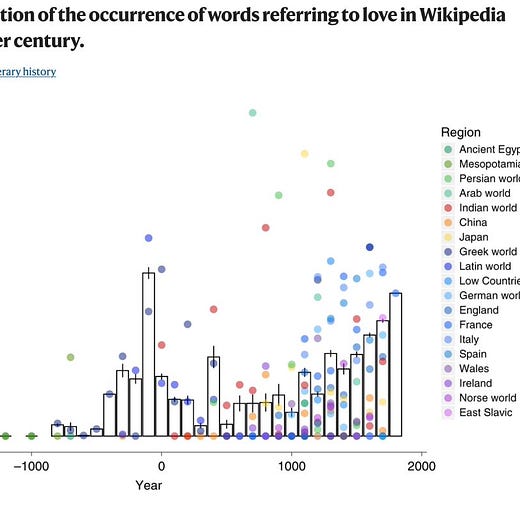
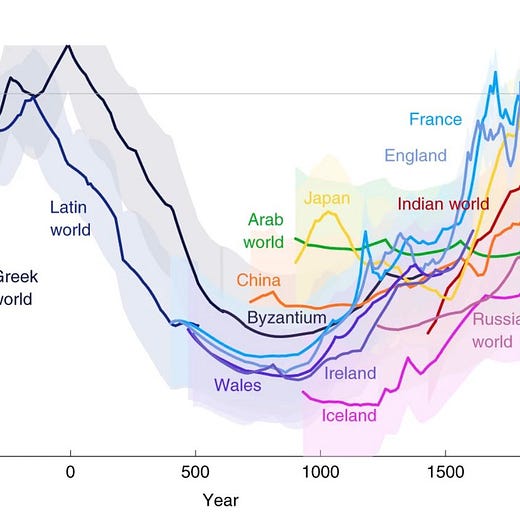
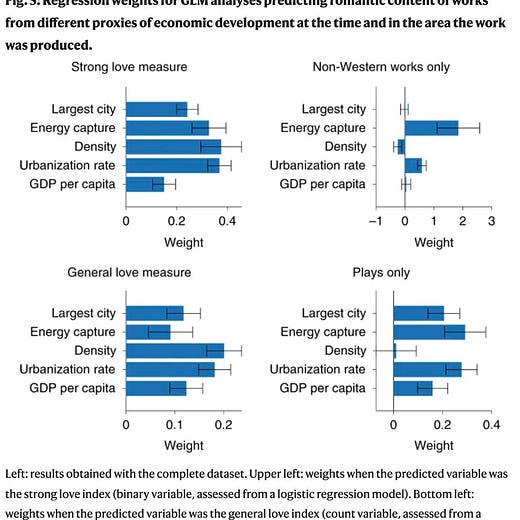
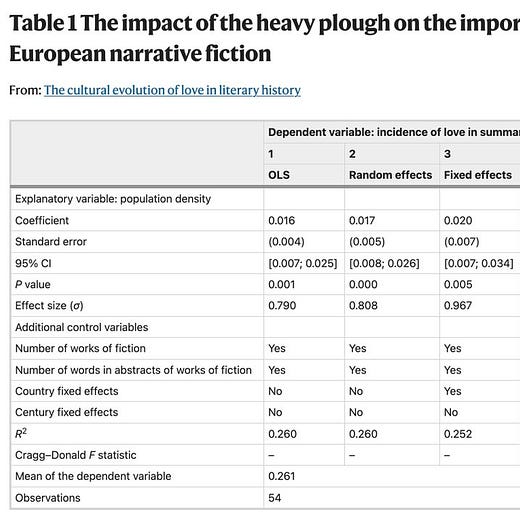
7:48 PM · Mar 7, 2022
91 Reposts · 364 Likes

Michael Ewens@startupecon
🧵about paper with @kairong_xiao + @TingXuFinance. We explore public firms' regulatory avoidance: manipulating public float. TLDR: firms bunch around regulatory thresholds➡️reveal major💲of being public.Though meaningful, costs cannot explain ⬇️ listed firms 1/

6:10 PM · Mar 10, 2022
3 Reposts · 26 Likes

Rebecca Dizon-Ross@RDizonRoss
Using willingness-to-pay (WTP) as an outcome variable in your study? Try also eliciting WTP for a "benchmark good" -- one unrelated to your outcome or independent variables of interest. Include it as a control in your regressions. Can improve power a lot! among other benefits.

3:54 PM · Mar 7, 2022
111 Reposts · 639 Likes

Ben Glasner@BenGlasner
Excited that my job market paper, and first publication, has found a home on the Journal of Labor Economics Just Accepted page!
journals.uchicago.edu/doi/10.1086/71…
"The Minimum Wage, Self-Employment, and the Online Gig Economy"
#EconTwitter @SOLE_Labor_Econ #minimumwage #Uber
1/n
journals.uchicago.edu
The Minimum Wage, Self-Employment, and the Online Gig Economy | Journal of Labor Economics: Vol 0, No ja

9:24 PM · Mar 7, 2022
21 Reposts · 157 Likes

Erik Brynjolfsson@erikbryn
How Many Americans Work Remotely?
@johnjhorton, Christos Makridis, @AlexMasPton, @ModeledBehavior, @danielrock, @ocolluphid & I find that gov't stats underestimate remote work.
The actual share is ~50% working remote at least 1x/week.
#EconTwitter #WFH
digitaleconomy.stanford.edu/publications/h…

3:49 PM · Mar 12, 2022
36 Reposts · 107 Likes
^related paper thread, on the donut; see also, graph

Aaron Chalfin@AaronChalfin
In an era of big data, linking between datasets is critical. Unfortunately datasets often lack common identifiers. With @tahamonster, @zubinjelveh, @melissa_mcneill, @shiyan_cj, @benconomics, I've got a new paper that shows that a little ground truth can go a long way.👇

2:52 PM · Mar 10, 2022
16 Reposts · 67 Likes

Ben Golub 🇺🇦@ben_golub
An argument that pecuniary externalities are morally significant and so we are morally obligated to, e.g., buy less wheat.
Would be interested to hear people's reactions!
@akbarpour_ @skominers

Tom Adamczewski @tmkadamcz
Hey @ben_golub @ShengwuLi what do you think of this argument?
https://t.co/skNPSCpCTj
12:00 AM · Mar 12, 2022
1 Repost · 3 Likes

Dr. Chloe N. East (she/her)@ChloeEast2
🎉1st announcement of the week! & on #InternationalWomensDay!
@a_velasquezg & I's paper is accepted at @J_HumanResource!
We show immigration enforcement reduces employment of college-educated moms w young kids bc of higher cost of household help
chloeneast.com/uploads/8/9/9/…
🧵👇

4:42 PM · Mar 8, 2022
50 Reposts · 261 Likes

Lee Crawfurd@leecrawfurd
For #InternationalWomensDay a new study showing that when mothers work during preschool years it has no impact on children's education outcomes (age 15).
- effect of less time is entirely compensated by
+ effect of more money
journals.uchicago.edu/doi/10.1086/71…
iza.org/publications/d…
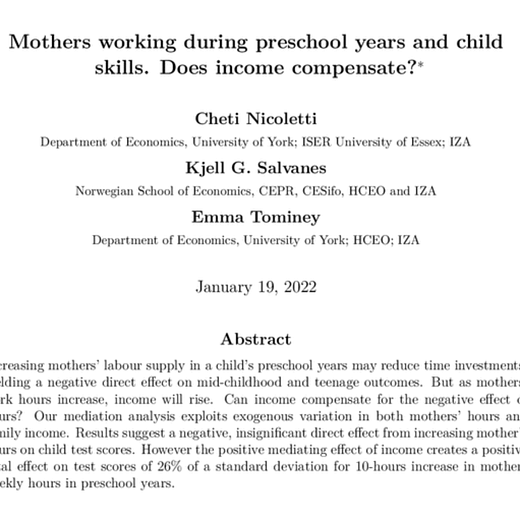
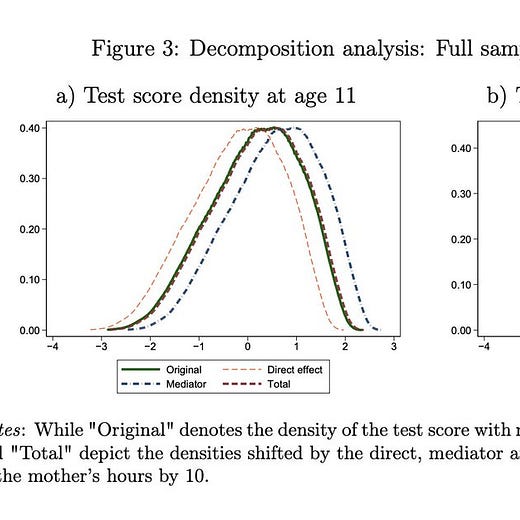
9:03 AM · Mar 8, 2022
4 Reposts · 7 Likes

John B. Holbein@JohnHolbein1
Did expanding the Child Tax Credit in 2021 make fewer people work?
Nope!
"Our analyses suggest that the expanded CTC did not have negative short-term employment effects that offset its documented reductions in poverty and hardship."
nber.org/papers/w29823
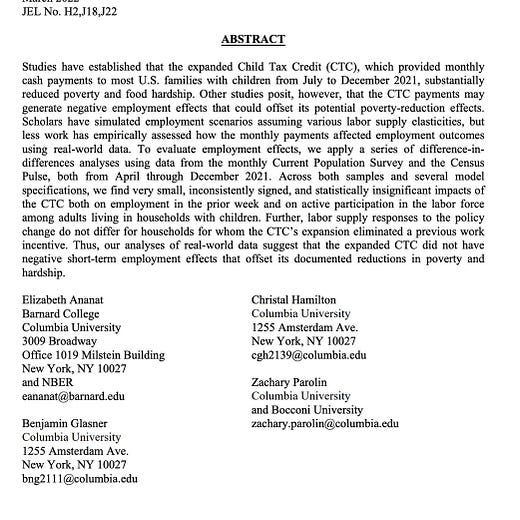
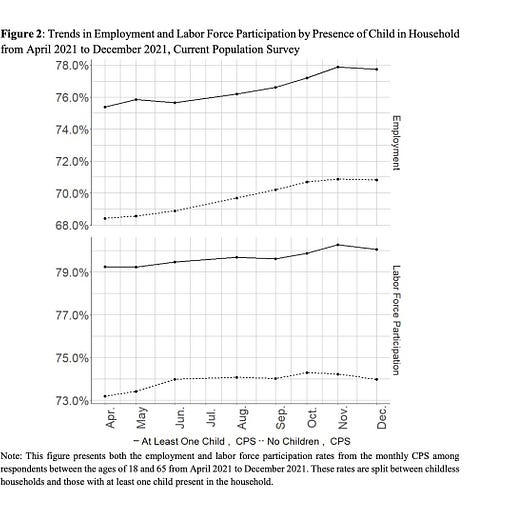
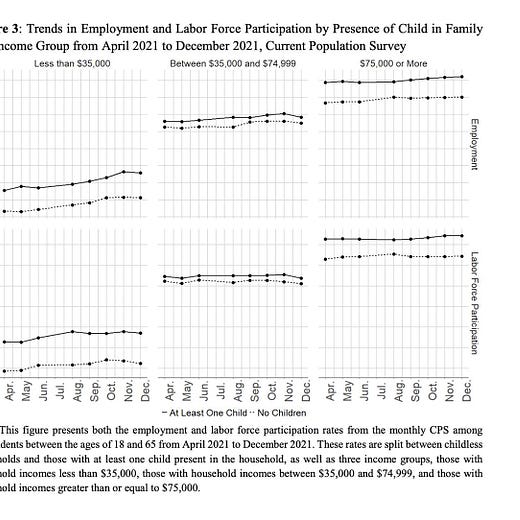
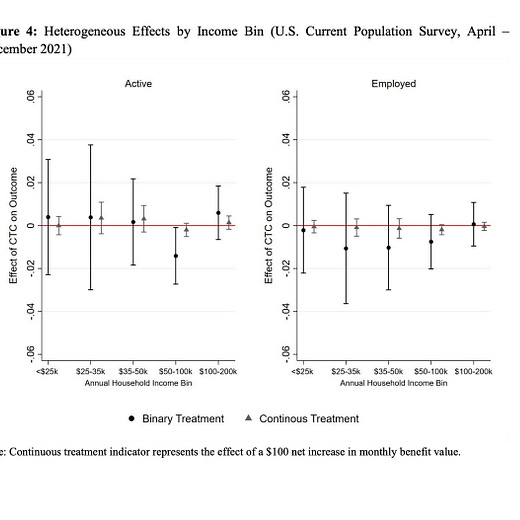
11:36 AM · Mar 7, 2022
99 Reposts · 223 Likes

Tom Vogl@tom_vogl
Women who lost siblings in childhood are much more likely to lose children of their own.
➡️ Over the generations, a small share of lineages accumulates a large share of child deaths.

6:42 PM · Mar 7, 2022
3 Likes
Public goods

Esteban Ortiz-Ospina@EOrtizOspina
The World Bank has released a brand new Gender Data Portal: genderdata.worldbank.org
They’ve revamped the entire site and I found a lot of cool new features / changes. Five highlights 🧵
genderdata.worldbank.org
World Bank Gender Data Portal
4:10 PM · Mar 9, 2022
23 Reposts · 45 Likes
Interesting discussions

John List@Econ_4_Everyone
We will be announcing some exciting new features of JPE-Micro soon. But, here is a glimpse: time to change the incentives around replications.
We will take them!
The knowledge creation market in economics can do better. We hope to help.
9:37 PM · Mar 9, 2022
107 Reposts · 752 Likes

Konrad Burchardi@kbburchardi
Last year I had the chance to serve on the @ERC_Research Starting Grant evaluation panel. I wanted to quickly share a couple of things I learned. Maybe they are helpful to future applicants. I guess some points apply to other grants as well.
1:03 PM · Mar 7, 2022
262 Reposts · 1.01K Likes

Fiona Conlon@FionaConlon4
Jean Drèze's piece in @Ideas4India is essential reading for anyone in the evidence-scaling-policy space. A summary:

Road Scholarz @roadscholarz
Jean Drèze on the perils of some “randomized controlled trials” (RCTs) in economics, and possible safeguards – with a startling case study. Do read.
https://t.co/buzBS6vMPl
9:52 AM · Mar 11, 2022
25 Reposts · 93 Likes
^overselling is not a problem just for RCTs, but for any piece of research; but interesting discussion

Dina D. Pomeranz@DinaPomeranz
Yes, the world is extremely unequal: the 10% of people with the highest incomes in Madagaskar have a lower income on average than the poorest 10% in the UK.
Where you are born has a huge impact on your economic opportunities.
(Adjusted for prices, i.e. for purchasing power).


Dina D. Pomeranz @DinaPomeranz
Question about global income inequality: How do you think the income of the top 10% of people in Madagaskar ("M top") compares to the income of the poorest 10% in the UK ("UK low")?
I'll post the answer tomorrow
(This is adjusted for prices, i.e. adjusted for purchasing power)
4:54 PM · Mar 11, 2022
66 Reposts · 191 Likes

